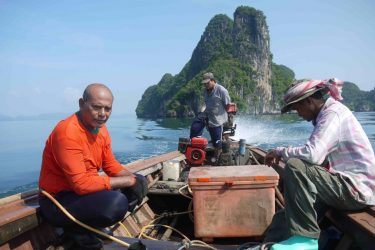
People must be part of the equation when it comes to conservation projects in order to increase local support and the overall effectiveness of the conservation efforts.
That’s the main conclusion of a study published online on Nov. 29 in Biological Conservation. In it, a group of scientists from around the world recognize the need to consider the livelihoods of humans, their cultural traditions and dependence on natural resources when planning and carrying out conservation around the world.
“We really need to think about people as we’re creating conservation initiatives. Forgetting about humans in the conservation recipe is like forgetting yeast in a loaf of bread,” said lead author Nathan Bennett, a Fulbright Visiting Scholar and postdoc at the University of Washington’s School of Marine and Environmental Affairs, the University of British Columbia and Stanford University.
Read more at UW Today »
